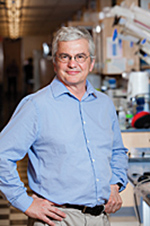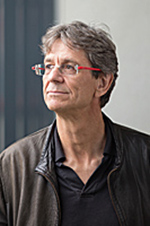Three UC San Diego Researchers Elected to National Academy of Medicine
Ferrara, Glass and Malinow join premier advisory group on national medical and health issues
Published Date
By:
- Scott LaFee
Share This:
Article Content
The National Academy of Medicine (NAM) announced today the election of three new members from University of California, San Diego School of Medicine: Napoleone Ferrara, MD; Christopher K. Glass, MD, PhD; and Roberto Malinow, MD, PhD. Election to NAM is considered among the highest honors in the fields of health and medicine.
Formerly known as the Institute of Medicine, NAM was chartered by Congress in 1970 to provide authoritative, independent, scientifically balanced advice on health and medical issues of national importance. Ferrara, Glass and Malinow were among 70 new members and 10 international members announced today at the organization’s annual meeting, bringing NAM’s total active membership to 1,963 worldwide.
Fifty UC San Diego faculty members, current and emeritus, are members of NAM.

Napoleone Ferrara, MD
Napoleone Ferrara, MD
Ferrara, Distinguished Professor of Ophthalmology and Pathology and senior deputy director for Basic Science at Moores Cancer Center at UC San Diego Health, has devoted his career to investigating and remediating the effects of angiogenesis – a process fundamental to embryonic development but also exploited by cancer tumors to promote blood vessel growth to sustain and fuel their growth and survival.
In the late 1980s, while working at Genentech, Ferrara and colleagues were the first to isolate and clone vascular endothelial growth factor (VEGF) – and prove that VEGF promoted the growth of blood vessels in animals. He and colleagues then discovered a way to inactivate VEGF, essentially cutting off a tumor’s blood supply.
The work ultimately led to development of bevacizumab (marketed as Avastin) in 2004, the first clinically available angiogenesis inhibitor drug in the United States. Avastin is now used to treat multiple forms of cancer, including, brain, lung, cervical, ovarian and colorectal.
Ferrara was also instrumental in development of another anti-VEGF monoclonal antibody drug called ranibizumab (Lucentis), which is used to treat wet age-related macular degeneration or AMD, an eye disease characterized by abnormal blood vessel growth that can result in severe vision loss. More than 1 million American adults have wet AMD. It is the leading cause of blindness in people over the age of 55.
Ferrara received his medical training and degree at the University of Catania Medical School in Italy, with postdoctoral work at UC San Francisco. He worked as a researcher at Genentech in South San Francisco for almost 25 years until moving to UC San Diego in 2013.

Christopher Glass, MD, PhD
Christopher K. Glass, MD, PhD
Glass, professor of medicine and cellular and molecular medicine, investigates the transcriptional mechanisms that regulate development and function of macrophages – a type of white blood cell that plays key roles in immunity and inflammatory diseases.
A major line of investigation of Glass’ laboratory is to understand how the normally beneficial actions of the macrophage are subverted in inflammatory diseases that include atherosclerosis, diabetes and neurodegenerative disease. His studies uncovered basic mechanisms that regulate both protective and pathogenic functions of macrophages that reside in atherosclerotic lesions, adipose tissue and the brain. He recently discovered how small genetic differences in regions of the genome that do not code for proteins can nonetheless influence the extent to which genes are turned on or off among different individuals and thereby influence risk of disease. These findings have implications for improved prediction, diagnosis and treatment of a broad spectrum of human diseases.
Glass earned his undergraduate degree in biophysics at UC Berkeley and his PhD in biology and MD degree at UC San Diego. He became a faculty member at UC San Diego in 1989.

Roberto Malinow, MD, PhD
Roberto Malinow, MD, PhD
Malinow is a Distinguished Professor of Neurosciences and Neurobiology and holds the Shiley Endowed Chair in Alzheimer’s Disease Research in Honor of Dr. Leon Thal. His research seeks to understand how the brain forms and stores memories.
Specifically, his lab examines signal strength and activity at synapses – the communications links between neurons. Last year, Malinow and colleagues reported being able to form, erase and reactivate memories in rats – a feat with potential implications for eventually being able to counteract some of the effects of Alzheimer’s disease.
Additionally, he and colleagues identified a control mechanism for an area of the rodent brain that processes sensory and emotive information that humans experience as “disappointment.” The discovery may have implications for drug development to treat mood disorders.
Malinow received his medical training and degree at New York University and his PhD at UC Berkeley. He joined UC San Diego faculty in 2008 from Cold Spring Harbor Laboratory.
New NAM members are elected by current active members through a highly selective process that highlights individuals who have made major contributions to the advancement of medical sciences, health care and public health. Members, who are unpaid, provide scientific advice to Congress and federal agencies, as well as public and non-governmental organizations. The organization collaborates closely with the National Academy of Sciences and the National Academy of Engineering.
Share This:
You May Also Like
Stay in the Know
Keep up with all the latest from UC San Diego. Subscribe to the newsletter today.



